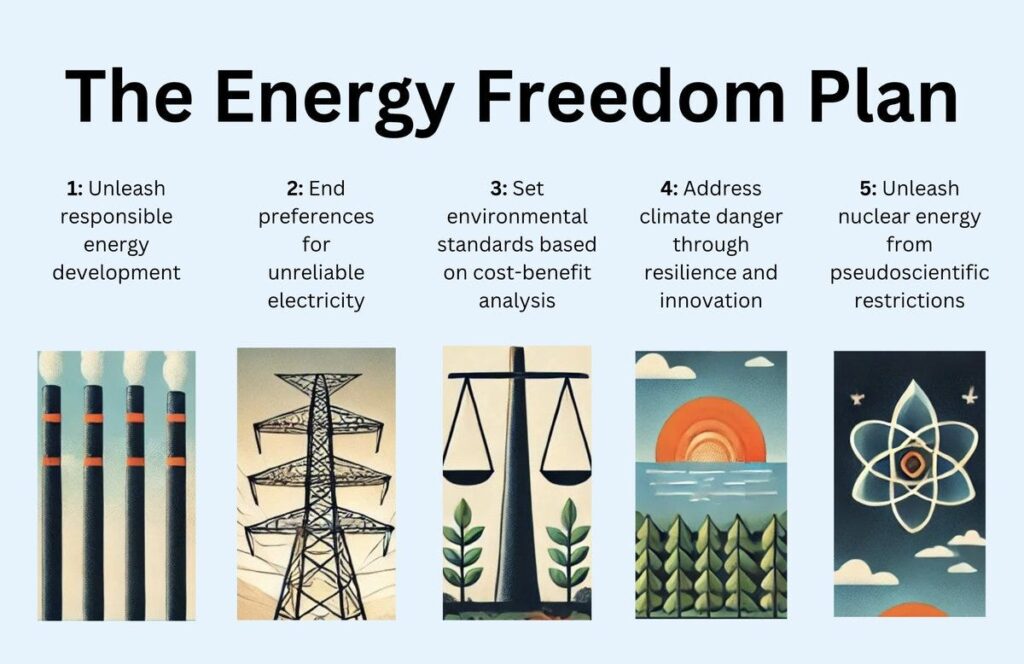In a shifting political and environmental landscape, one message is beginning to cut through the noise: affordability and sustainability must go hand in hand. As energy prices soar and climate concerns mount, the Democratic Party appears to be finding its footing with a message that speaks directly to voters’ wallets — and their futures. The results from the November 2025 elections in Virginia, New Jersey, and Georgia make that clear.
Democrats not only swept key gubernatorial races in Virginia and New Jersey, but they also gained influence on Georgia’s utility board, demonstrating a growing voter appetite for policies that address the real cost of energy while keeping sustainability front and center. For the first time in several election cycles, Democrats successfully framed the energy conversation around consumer affordability — a theme that resonated across communities strained by skyrocketing electricity bills and rising demand from industries such as data centers.
You can explore more on this topic and related climate initiatives at Sustainable Action Now.
The Energy Affordability Breakthrough
The heart of the Democrats’ success can be summed up in three words that echoed through campaign speeches and voter outreach: “Affordability, affordability, affordability.” Voters across Virginia and New Jersey responded to this simple but potent message — one that acknowledged a reality many households are living with every month.
Electricity costs have become a major source of stress for millions of Americans, particularly in states where regional energy markets have seen price spikes due to aging infrastructure, higher demand from new technologies, and an uncertain mix of clean and fossil fuel supply. By emphasizing the economic strain of high energy bills, Democratic candidates connected with voters on a personal level while linking their solutions to broader clean energy investments and grid modernization.
This reframing of the debate allowed Democrats to turn the GOP’s traditional energy advantage on its head. While Republicans emphasized deregulation and fossil fuel expansion, Democrats tied those very policies to rising costs — arguing that failure to invest in renewable energy and efficient infrastructure has left consumers paying more for less reliable power.
A Vulnerability in the GOP Energy Strategy
Even some Republican strategists have acknowledged that the party’s energy platform has become vulnerable. For years, Republicans positioned themselves as champions of cheap energy, but as electricity costs have continued to climb — particularly under an administration that curtailed clean-energy projects — the message has started to backfire.
Former President Trump had made cutting energy costs a core promise of his administration. Yet, his decisions to prioritize data center expansion while canceling key renewable energy initiatives have drawn criticism for exacerbating power shortages and driving up prices. This contradiction provided Democrats an opening to connect the dots between Republican policies and the pain consumers are feeling.
Analysts now believe that the 2025 election results may mark a turning point in how voters perceive energy politics. Instead of viewing climate and economic policies as competing priorities, the electorate is beginning to see that clean energy and affordability are deeply intertwined.
A Roadmap for the 2026 Midterms
The implications of this shift extend well beyond the recent elections. Political strategists are already pointing to the 2025 Democratic victories as a potential roadmap for the 2026 midterms. The winning formula: an economic populist message centered on energy affordability, climate responsibility, and local empowerment.
By tying pocketbook issues to climate action, Democrats have managed to bring environmental policy into the mainstream economic conversation. This framing doesn’t just win votes — it builds a bridge between short-term consumer relief and long-term sustainability.
In states like New Jersey, where green infrastructure projects and offshore wind initiatives have faced political pushback, the success of this affordability-based messaging could rejuvenate momentum for clean energy development. The same holds true in Virginia, where grid upgrades and renewable investment have become central to both economic and environmental policy discussions.
Unlocking the Power of Nature
At its core, this shift underscores a growing recognition that nature itself holds the key to energy stability and affordability. By investing in renewables, reforestation, carbon capture, and conservation, policymakers can unlock natural systems that not only mitigate climate change but also reduce the volatility of global energy markets.
Sustainable Action Now advocates for this very approach — harnessing the power of nature to drive real climate solutions. From restoring ecosystems that act as carbon sinks to accelerating the deployment of solar and wind power, natural and technological innovation must work hand in hand to secure a more stable and equitable future.
For deeper insight into the intersection of climate action and economic policy, visit Sustainable Action Now’s Climate section.
The Path Forward
The energy affordability narrative is not just a political talking point — it’s a national imperative. As voters demand action that both lowers costs and safeguards the planet, it’s clear that the path forward will rely on policies that merge economic pragmatism with environmental vision.
The 2025 elections revealed that when leaders speak honestly about energy challenges and offer sustainable, people-first solutions, voters respond. Democrats may have unlocked a new era of political and policy alignment — one where climate action is no longer seen as a cost, but as an investment in affordability, resilience, and national security.
As the U.S. heads toward the 2026 midterms, one truth stands out: the power of nature and the promise of clean energy are not partisan ideals. They are the foundation of a more sustainable, affordable, and secure future — for everyone.


